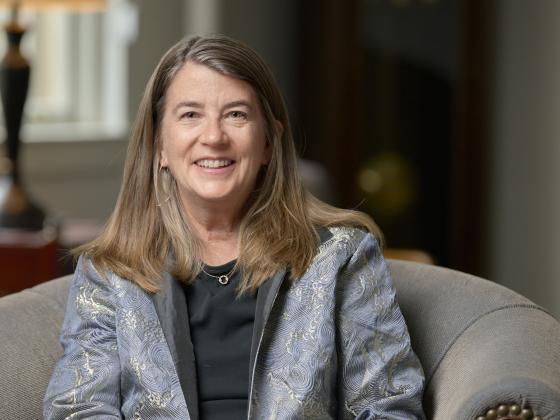Elizabeth Shanahan, a professor of political science at Montana State University, has received a Fulbright U.S. Scholar Program award to Australia, where she will investigate Australian public responses and policy development related to the prevention of emerging infectious disease.
Shanahan will collaborate with a researcher in the University of Wollongong’s School of Health and Society to study what motivates people to support strategies for preventing zoonotic spillovers — the transmission of pathogens from animals to people — and how to design disease prevention policies that will meet with compliance from the public. The project is based on the One Health approach, which gained attention around the world after the COVID-19 pandemic. One Health sees the quality of global health as a function of the interconnectedness of human, animal and environmental health. Challenges remain in translating this concept into effective policy with public acceptance, Shanahan said.
“We have a lot of excellent research from disease ecologists and virologists on how these viruses are transmitted, but there’s not as much work in the social sciences to understand people’s on-the-ground perspectives and how those stories directly impact policy acceptance,” Shanahan said.
Shanahan is an expert in narrative risk communication and co-architect of the Narrative Policy Framework, which examines the power of stories to gain public attention, motivate behavior and shape policy outcomes. In 2023, she was named a fellow of the National Academy of Public Administration, a position that she believes contributed to her successful application for the Fulbright award.
She will work with Chris Degeling, an associate professor at the University of Wollongong in New South Wales, who is also a member of a One Health High-Level Expert Panel. Shanahan said that she and Degeling are “in sync” with their shared interest in disease prevention, and together they will lead group discussions responding to presentations of increasingly complex disease prevention scenarios. They will evaluate the reactions and responses of participants, who will be selected from different social and demographic groups in four Australian states.
Shanahan said people generally aren’t motivated to engage in prevention strategies when no crisis exists, even though measures to prevent a disease outbreak have greater potential to significantly reduce deaths and health care costs. It’s difficult for people to think about reallocating resources or changing their habits in the absence of a crisis, particularly if those adjustments challenge their values and beliefs, she added.
“What I’m interested in is how do we prevent disease outbreaks from happening in the first place,” Shanahan said. “We are working on trying to understand what kind of policy is going to be palatable to people and then how it is going to be enforced.”
She said she is excited to conduct her research in Australia, which has recently established its own Centre for Disease Control and a One Health unit.
“They are a few steps down the road in figuring to how to take this idea of One Health, this approach, and transform it into policy,” she said.
Shanahan, who in addition to her professorship in the College of Letters and Science served as an associate vice president for MSU’s Office of Research Development, will work in Wollongong for four months in early 2026.
“There is a lot of work taking place all over the world, and ours will be a small piece of it,” Shanahan said. “I’m absolutely thrilled that I get to go and participate in this international collaboration on One Health prevention. It is how I want to wrap up my career, and I hope to make at least a small difference in how we can achieve global health.”

